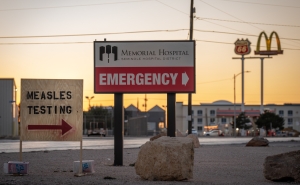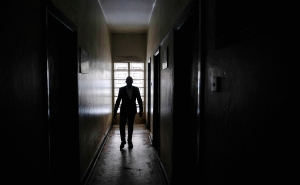Trust in Science and COVID-19
As states and communities press forward into reopening, the trajectory of the U.S. pandemic from this point forward will depend largely on the public’s willingness to invest in public health measures—such as continued social distancing, testing, and contact tracing.
Polarization of the coronavirus response and surging misinformation, however, threaten our capacity to control disease transmission.
To mobilize support for an effective pandemic response, we must correctly understand the sources of people’s skepticism. New findings from the Johns Hopkins COVID-19 Civic Life and Public Health national opinion survey, a partnership of the Johns Hopkins Bloomberg School of Public Health and the SNF Agora Institute of Johns Hopkins University, reveal a key factor that cuts across partisanship to distinguish skeptics and creates fertile ground for misinformation: distrust in science.
Our findings come from an examination of early doubters of social distancing, and what they reveal about weakness in our ability to garner sustained support for public health measures. Between April 7–13, a period that will likely be remembered as the high point of public acceptability of social distancing, we fielded the Johns Hopkins COVID-19 Civic Life and Public Health national opinion survey with 1,468 U.S. adults. Like other polls, we found that the large majority (76%) of U.S. adults supported social distancing to control coronavirus transmission. We were curious about the roughly one-quarter of U.S. adults who, even in early April, questioned social distancing.
Unsurprisingly, our data indicate that partisan differences were already emerging: 89% of Democrats viewed social distancing as very important, relative to 72% of Independents and 66% of Republicans. These findings are consistent with copious research showing the power of partisan identities to color the lens through which Americans view public events.
Given the complexity of the coronavirus pandemic, we wondered if partisanship was the only differentiating factor. The patchwork nature of the pandemic response could plausibly differentiate people’s responses by socio-demographics or geography. Those living in communities with lower COVID-19 fatality rates, young adults less vulnerable to illness, or people in lower-income households most dependent on keeping the economy running might be less persuaded by the necessity to social distance. In fact, these explanations did not pan out. The share of adults who strongly supported social distancing was nearly identical in states with the highest and the lowest COVID-19 case fatality rates in early April, and differed relatively little between young adults and the elderly or those with household incomes <$30,000 (72%) versus those with household incomes >$75,000 (80%).
In fact, more than socio-demographics and at least as much as partisan identification, the factor that distinguished doubters was their trust in science. Our survey asked: “[I]n general, would you say that you trust science a lot, some, not much, or not at all?” The public is split fairly evenly: 54% report trusting science “a lot,” and 46% trust science “some,” “not much,” or “not at all.” Simply understanding that nearly half of U.S. adults have doubts about science reveals why misinformation about the coronavirus pandemic has proliferated so easily. Across all parties, three-quarters of those who viewed social distancing as less important had doubts about science.
Critically, trust in science crosscuts partisanship: 80% of Republicans who trust science viewed social distancing as important compared with 55% of Republicans who doubted science. This same pattern held for Independents and Democrats. Trust in science also cuts across other salient social identities, such as religiosity. In aggregate, those with strong versus weak religious identities had nearly identical views about social distancing. But, 58% of those regularly attending services and two-thirds of Evangelicals report distrusting science. Among these science doubters, support for social distancing was more than 20 percentage points lower relative to those regularly attending religious services and Evangelicals who trust science.
Americans with doubts about science were, unsurprisingly, less likely to trust public health experts for information on COVID-19. Among those trusting science, 78% reported trusting medical experts and 73% trusted U.S. health agencies like the National Institutes of Health for accurate information about COVID-19. Among science doubters, only 36% trusted medical experts and 32% trusted national health agencies for accurate COVID-19 information.
In an infectious disease context, the subset of the public not convinced by scientific recommendations puts us all at risk. Medical experts and scientists have been our primary communicators in the pandemic. While that is understandable, there is an urgent need to effectively communicate public health evidence to Americans who distrust science. Fostering dialogue between scientists and trusted religious and civic leaders could make a difference. As the U.S. dives rapidly into the next phase of pandemic response, voices from outside the scientific community are needed to act as trusted intermediaries in communicating about proven public health practices that, if adopted, can save lives.
Colleen Barry, PhD, MPP, is chair of the Department of Health Policy and Management at the Johns Hopkins Bloomberg School of Public Health. Emma McGinty, PhD ’13, MS, is an associate professor in the Department. Hahrie Han, PhD, is director of the SNF Agora Institute at Johns Hopkins University.





